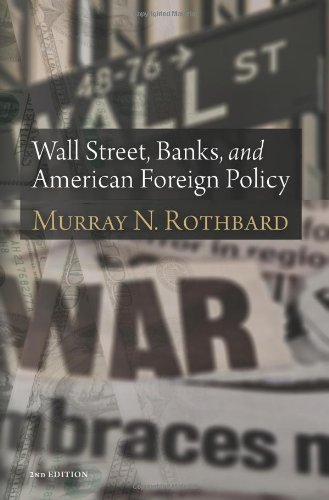American interventionism isn’t just sending in the Marines – more often it’s sending in the President. The “bully pulpit” has worldwide resonance, and President Obama recently used it to urge the British to reject “isolationism” and stay in the EU. As usual with the White House – and not just this one – the little lecture was accompanied by a threat: if the Brits abjured his advice, and that of British Prime Minister David Cameron, they would be put “at the back of the queue” when it comes to signing trade deals with the US.
This is nonsense, as London mayor Boris Johnson pointed out: the European Union’s routinely protectionist stance would actually made it harder rather than easier to negotiate any kind of trade deal. But Obama, undeterred by the furious reaction to his intervention in the debate, continued his assault on British “isolationism” the next day, averring that it would take a decade for the US to agree to freer trade with the British in the absence of the EU.
 Against the State: An ...
Best Price: $5.02
Buy New $5.52
(as of 11:35 UTC - Details)
Against the State: An ...
Best Price: $5.02
Buy New $5.52
(as of 11:35 UTC - Details)
I had to laugh when I read the following in the Bloomberg piece linked above:
“The comments extended the rare intervention of a U.S. president into another nation’s domestic politics. On Friday, Obama stood beside Prime Minister David Cameron to admonish the British electorate about the perils of embracing an isolationist stance.”
“Rare”? In what universe? I’m sure the peoples of South and Central America, not to mention more recent victims of US meddling in Ukraine and other places too numerous to list, would be very interested to hear how “rare” this is!
Indeed, the entire history of post-World War II American foreign policy is the story of US intervention in the internal affairs of nations from Western Europe to Eastasia. What other country has agencies of government devoted to bending the politics of other nations to their will?
So why is an American President intervening in the internal politics of a major ally, provoking a reaction that, incidentally, doesn’t help his case? Note how he couples the EU with NATO:
 Wall Street, Banks, an...
Buy New $2.99
(as of 05:10 UTC - Details)
“Speaking to about 550 invited British young people at a ‘town hall’ event on Saturday, Obama sought to pitch a more optimistic message to young Britons, who are considered to be more pro-European, if less active, voters than their parents.
Wall Street, Banks, an...
Buy New $2.99
(as of 05:10 UTC - Details)
“Speaking to about 550 invited British young people at a ‘town hall’ event on Saturday, Obama sought to pitch a more optimistic message to young Britons, who are considered to be more pro-European, if less active, voters than their parents.
“Obama said he wanted young people to reject the cynicism piped towards them by TV and Twitter, and he lauded both the European Union and NATO for sustaining peace and prosperity in Europe after centuries of war and strife.
“’Think about how extraordinary that is: For more than 1,000 years this continent was darkened by war and violence. It was taken for granted. It was assumed that was the fate of man,’ Obama said at Lindley Hall in London. ‘We see new calls for isolationism, for xenophobia,’ Obama said. ‘When I speak to young people, I implore them, and I implore you, to reject those calls to pull back.’”
The military-geopolitical aspect of the EU is key to understanding Washington’s enthusiasm for it. The EU is the political component: NATO is the military aspect of the Western powers’ forward march. If the West, victorious in the cold war, is to push its boundaries into the former Soviet Union, then this one-two combination is an essential strategy for the planned expansion. And the rationale for this new aggression is impeccably “progressive”: Without the wise guidance of unelected bureaucrats in Brussels Europe will descend into a new dark age. All nationalism, no matter how pacific, is evil. All opposition is “isolationist.”




